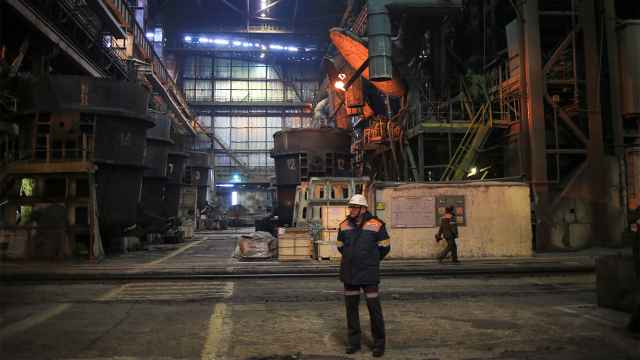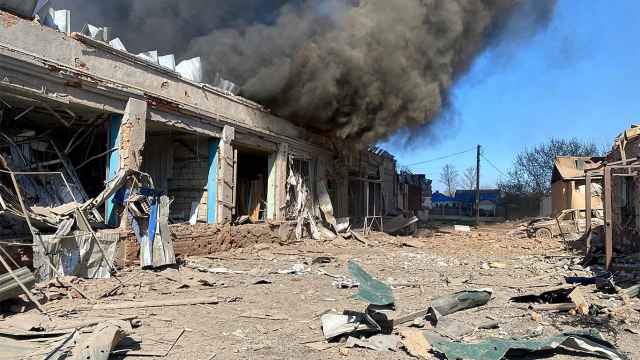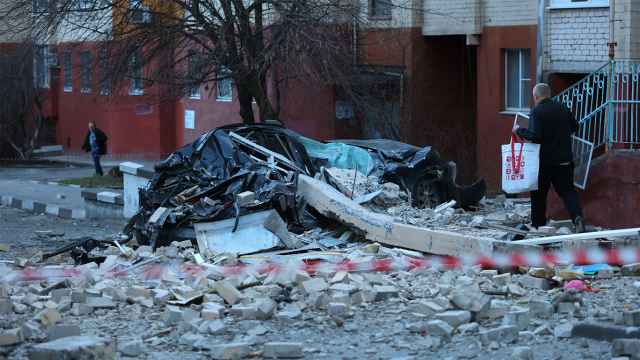President Vladimir Putin said it well in his inauguration speech Monday when he declared, "The coming years will be decisive for Russia's fate for decades to come." While this applies to economic issues, it is especially true for Russia's democracy. What we have witnessed over the past few days is disturbing.
It is easy for foreign investors to write off frictions involving democracy as a domestic problem that does not affect their activities. China is the poster child of an authoritarian government whose hard-line stance on democratic-minded citizens has been successfully separated from its foreign investor-friendly business policies.
But Russia is not China. Political turmoil inevitably translates into economic instability in this country, and this week's violent turn at the anti-Putin protests gives reason for pause. Up until now, protests ignited by seriously flawed State Duma elections in December had been largely peaceful and the authorities, although not pleased with the criticism, had permitted the opposition-minded middle class to air their grievances about rigged elections, a lack of a free media, and other missing ingredients in Russia's democracy.
By allowing the police to use brutal force, Putin has entered a dangerous realm. After all, violent tactics against protesters led to the collapse of governments in Tunisia, Egypt and Libya in the past 16 months and has sowed instability in other countries like Syria. Thankfully, Putin's government has not crossed this line by permitting the killing of protesters.
But with this week's clashes, Putin has opened the door to an escalation in violence.
To be sure, the OMON riot police were not dealing with a herd of lambs. Moscow Times reporters saw young people throwing asphalt, bottles, poles and a Molotov cocktail on Sunday. The protesters tried to capture officers and tear their helmets off in order to parade the helmets around.
Did the police — who also sustained injuries — create an environment that encouraged violence? It seems so. Were there incidents of police brutality? Absolutely.
But comments attributed to Putin's spokesman Dmitry Peskov that the police had not acted harshly enough are worrisome. "The livers of protesters should be smeared across the asphalt for those OMON officers who were wounded," he said, according to A Just Russia Deputy Ilya Ponomaryov.
Putin himself has never displayed tolerance for those opposed to his government, infamously saying in 2010 that protesters who staged unsanctioned rallies deserved "to get hit on the head" by the police.
So it is all the more surprising that Putin spoke with a straight face about making Russia more democratic during the next six years of his presidency. "We will achieve our goals if we are a single, united people — if we hold our fatherland dear, strengthen Russian democracy, constitutional rights and freedoms," Putin said in his inauguration speech.
One of the rights enshrined in Article 31 of the Constitution is freedom of assembly, as the Strategy 31 demonstrators have reminded Putin for months with their regular protests, which have been inevitably broken up by the police. This week's protesters have also sought to take advantage of this democratic norm. Indeed, it is the freedom to exercise this right that Dmitry Medvedev recently declared a hallmark of his presidency.
When Ren-TV anchor Marina Maximovskaya asked Medvedev in an interview on April 26 whether the country had become more free during his four years in power, Medvedev pointed to the post-Duma elections protests as proof. "Let's ask the people who took to the streets whether they are free — regardless who they were for. … I am convinced that the big majority will say 'Yes I am free, and therefore I stand here,'" Medvedev said.
Yes, Putin and Medvedev can talk big when it comes to democracy. But for the sake of democracy, Russia and their own legacies, they must walk the talk. Actions must follow their words. The violence against protesters must stop before it spirals out of control. The decision that Putin makes now will be decisive for Russia's fate for decades to come.





